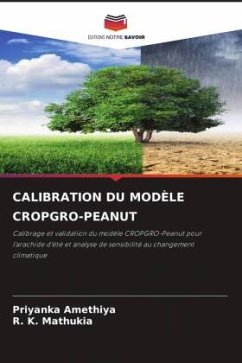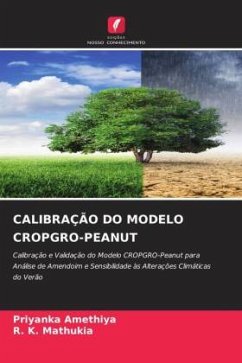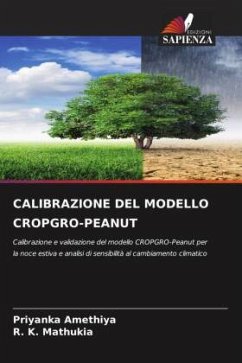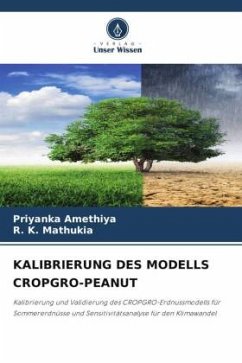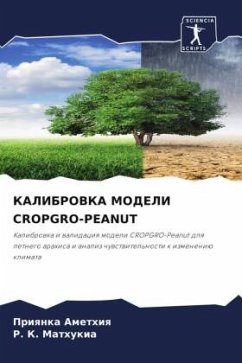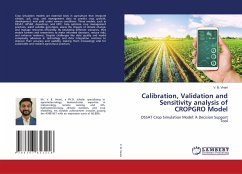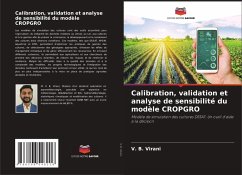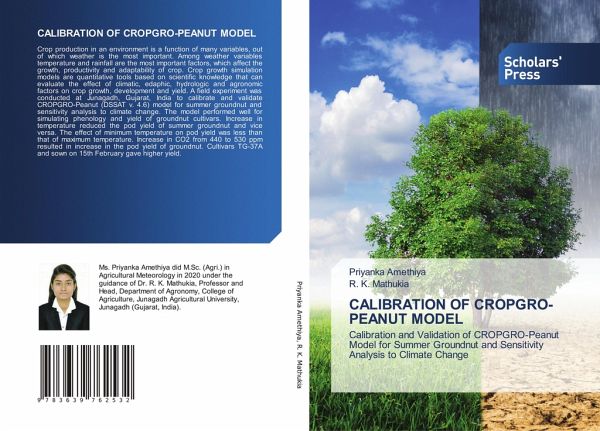
CALIBRATION OF CROPGRO-PEANUT MODEL
Calibration and Validation of CROPGRO-Peanut Model for Summer Groundnut and Sensitivity Analysis to Climate Change
Versandkostenfrei!
Versandfertig in 6-10 Tagen
45,99 €
inkl. MwSt.

PAYBACK Punkte
23 °P sammeln!
Crop production in an environment is a function of many variables, out of which weather is the most important. Among weather variables temperature and rainfall are the most important factors, which affect the growth, productivity and adaptability of crop. Crop growth simulation models are quantitative tools based on scientific knowledge that can evaluate the effect of climatic, edaphic, hydrologic and agronomic factors on crop growth, development and yield. A field experiment was conducted at Junagadh, Gujarat, India to calibrate and validate CROPGRO-Peanut (DSSAT v. 4.6) model for summer grou...
Crop production in an environment is a function of many variables, out of which weather is the most important. Among weather variables temperature and rainfall are the most important factors, which affect the growth, productivity and adaptability of crop. Crop growth simulation models are quantitative tools based on scientific knowledge that can evaluate the effect of climatic, edaphic, hydrologic and agronomic factors on crop growth, development and yield. A field experiment was conducted at Junagadh, Gujarat, India to calibrate and validate CROPGRO-Peanut (DSSAT v. 4.6) model for summer groundnut and sensitivity analysis to climate change. The model performed well for simulating phenology and yield of groundnut cultivars. Increase in temperature reduced the pod yield of summer groundnut and vice versa. The effect of minimum temperature on pod yield was less than that of maximum temperature. Increase in CO2 from 440 to 530 ppm resulted in increase in the pod yield of groundnut. Cultivars TG-37A and sown on 15th February gave higher yield.



